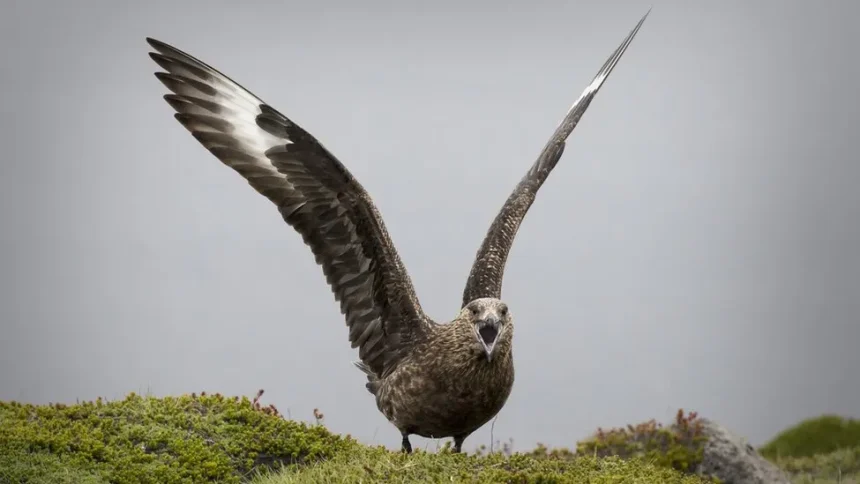The charity reports that although great skuas, which fly over the UK’s shores and take the food of other birds, were 76% fewer in number in 2023.
Following the avian flu that killed thousands of wild birds in 2021–2022, gannet and roseate tern populations were also severely decimated.
Prior to the epidemic, all three species’ populations were increasing.
In the summer of 2021, the H5N1 strain of avian flu infected wild birds, killing thousands of them.
According to the RSBP, the results demonstrate that avian flu is “one of the biggest immediate conservation threats faced by multiple seabirds”.
According to Jean Duggan, RSPB avian influenza policy assistant, “this is a wake-up call as to how serious avian flu is and it’s coming on top of multiple other threats that these species face.”
After surveying thirteen bird species between May and July of 2023, the RSPB found that avian flu was most likely the reason for the loss of Sandwich and Common Terns as well as the decline of Great Skuas, Gannets, and Roseate Terns.
In comparison with a significant bird population census conducted between 2015 and 2021, gannet populations have decreased by 25%, Roseate Terns by 21%, Sandwich Terns by 35%, and Common Terns by 42%.
Scotland is home to nearly all of the Great Skuas in the UK. At least 2,591 Great Skuas perished in 2022; of those, 1,400 were from a single colony on Shetland’s Foula island.
In the UK, the total number has decreased from 9,088 to 2,160.
Ms. Duggan emphasized that because so many of the birds breed there, Britain plays a crucial role in their global protection.
“It’s empowering to realise that if we take the right actions in the UK it will actually benefit global populations to a very significant degree,” she continues.







